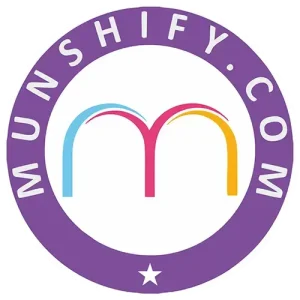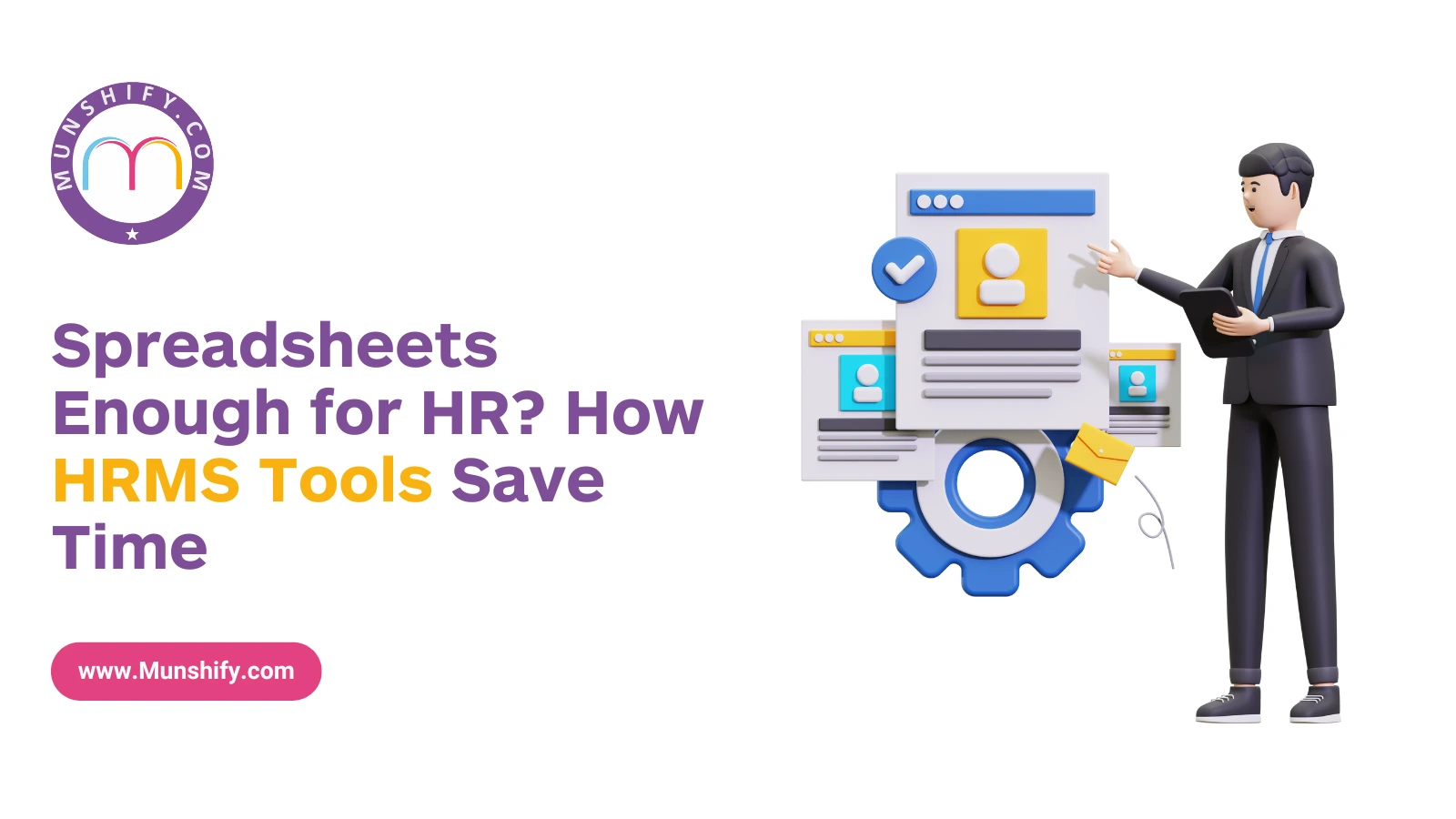In today’s fast-paced corporate environment, managing human resources (HR) efficiently is crucial for any organization’s success. Many businesses still rely on spreadsheets to handle HR tasks such as payroll, attendance, and employee data management. While spreadsheets are simple to use and familiar, they often fall short when it comes to meeting the complex and dynamic needs of HR operations. This is where HRMS tools come into play. These tools are designed to streamline HR processes, save time, and enhance overall productivity. In this blog, we’ll explore the limitations of spreadsheets, the benefits of HRMS tools, and how they can revolutionize your HR management practices.
Limitations of Using Spreadsheets for HR Tasks
Spreadsheets have been a go-to solution for managing HR tasks for decades. However, as organizations grow, their limitations become evident:
- Time-Consuming Data Entry
Managing employee data manually in spreadsheets requires significant time and effort. Every update, correction, or addition increases the workload and the likelihood of errors.
- Lack of Integration
Spreadsheets cannot integrate with other systems, such as payroll software or attendance tracking tools. This leads to fragmented processes and duplication of efforts.
- Error-Prone
A single mistake in a spreadsheet formula or data entry can cause cascading errors, impacting payroll calculations, employee evaluations, or compliance reports.
- Inadequate Security
Spreadsheets are not designed to store sensitive employee information securely. Unauthorized access or accidental sharing can lead to data breaches.
- Limited Reporting Capabilities
Analyzing data from spreadsheets for strategic decision-making is challenging. Creating comprehensive reports often requires additional time and expertise.
These challenges highlight the need for a more efficient and reliable solution, which is where HRMS tools excel.
What is HRMS Tools?
An HRMS (Human Resource Management System) tools is a software solution that automates and centralizes various HR processes. From recruitment and payroll management to performance tracking and compliance, HRMS tools handle it all in one integrated platform.
These tools are designed to reduce manual work, minimize errors, and enhance HR functions by providing real-time insights and analytics. Unlike spreadsheets, HRMS tools are scalable and customizable, making them ideal for businesses of all sizes.
How HRMS Tools Save Time and Boost Efficiency
Switching to an HRMS tool can significantly improve efficiency across HR departments. Here’s how:
- Automated Processes
HRMS tools automate repetitive tasks such as payroll calculations, attendance tracking, and benefits management. This reduces the time spent on manual work and allows HR professionals to focus on strategic initiatives.
- Centralized Data Management
Instead of juggling multiple spreadsheets, HRMS System stores all employee information in a centralized database. This ensures quick access to accurate data whenever needed.
- Real-Time Updates
HRMS tools provide real-time updates on employee attendance, leave requests, and performance metrics. This eliminates the need for constant data consolidation.
- Improved Compliance
Staying compliant with labor laws and regulations is easier with HRMS tools. They automatically update policies, track documentation, and generate compliance reports, saving time and reducing risk.
- Enhanced Collaboration
Many HRMS tools include self-service portals for employees and managers. These portals enable efficient communication and reduce the back-and-forth typically associated with HR inquiries.
Key Advantages of Switching from Spreadsheets to HRMS
Switching from spreadsheets to HR cloud software offers numerous advantages beyond time savings.
- Accuracy and Reliability
HRMS tools reduce errors through automation, ensuring payroll accuracy and adherence to company policies.
- Scalability
As businesses grow, HRMS tools can easily adapt to handle an increasing number of employees and processes without compromising efficiency.
- Customizable Features
Many HRMS tools allow customization based on the organization’s specific needs, unlike spreadsheets that lack flexibility.
- Data Security
With built-in encryption and role-based access, HRMS tools offer a higher level of security for sensitive employee data.
- In-Depth Analytics
Comprehensive dashboards and analytics provided by HRMS tools offer actionable insights, empowering HR teams to make informed decisions.
Factors to Consider When Choosing an HRMS Tool
Selecting the right HRMS Software is critical to maximizing its benefits. Here are key factors to consider:
- Ease of Use
Choose a user-friendly HRMS tool that requires minimal training for HR teams and employees.
- Integration Capabilities
Ensure the tool can integrate with other systems such as payroll software, accounting platforms, and attendance tracking devices.
- Customization Options
Opt for a tool that allows customization to match your organization’s unique requirements.
- Scalability
Select a solution that can grow with your business and accommodate additional features as needed.
- Vendor Support
Reliable customer support and regular software updates are essential for smooth operations.
- Cost-Effectiveness
Evaluate the tool’s pricing model to ensure it aligns with your budget without compromising on features.
While spreadsheets may have served as a reliable tool for HR management in the past, they are no longer sufficient for today’s dynamic business environment. The limitations of spreadsheets in handling complex HR tasks are significant, making the transition to HRMS a logical and necessary step for modern organizations.
HRMS tools not only save time but also boost efficiency by automating tasks, centralizing data, and enhancing decision-making processes. With features such as real-time updates, advanced analytics, and robust security, these tools empower HR professionals to focus on strategic growth rather than administrative burdens.
By carefully selecting the right HRMS tool, businesses can streamline their HR operations and set themselves up for long-term success. Make the switch today and experience the transformative impact of HRMS tools on your organization!



